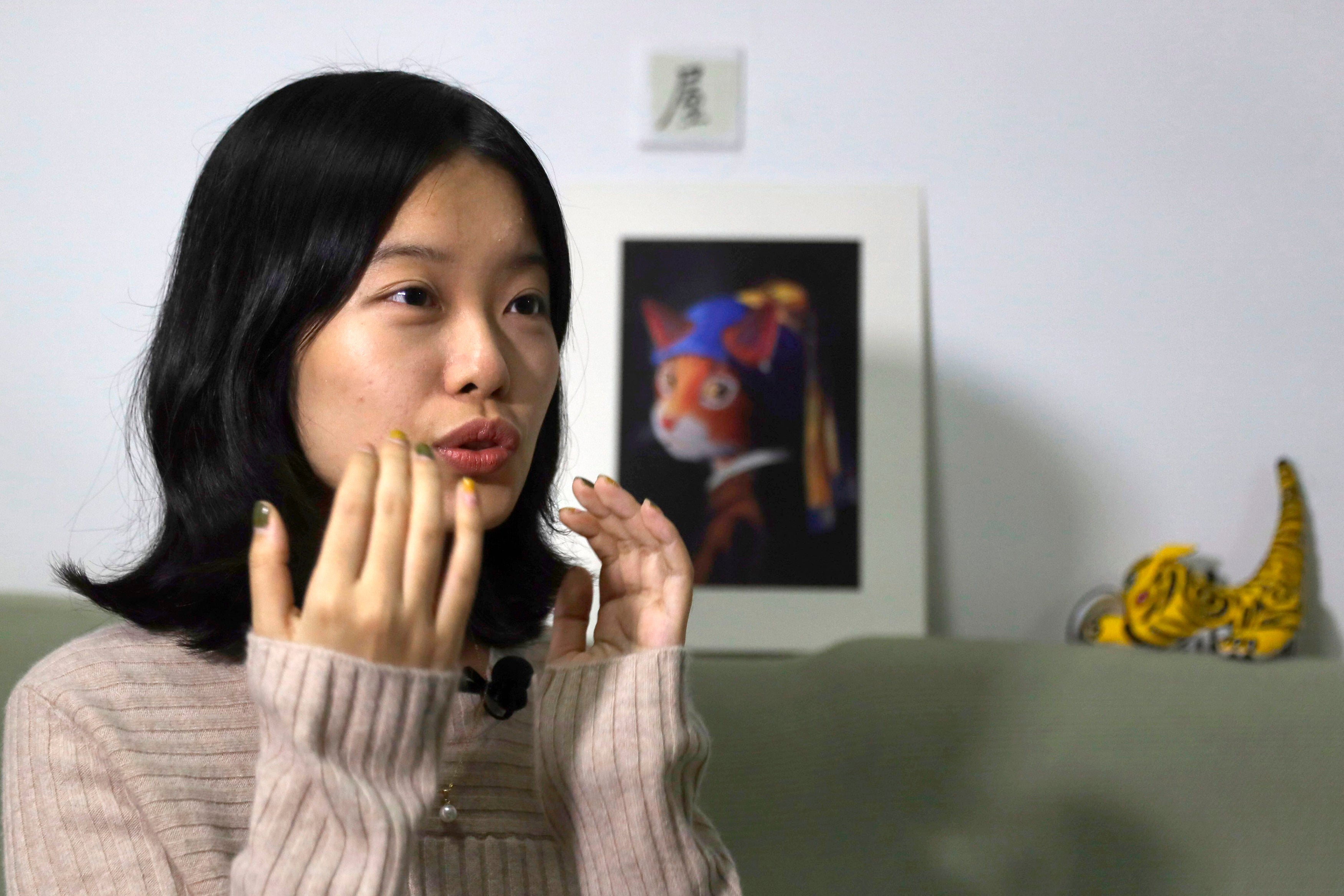China #MeToo case heads to court after 2-year delay
A high profile case of sexual harassment in China’s #MeToo movement involving a well-known Chinese state TV host will be tried in court Wednesday in Beijing after pending for more than two years

Zhou Xiaoxuan’s says her prestigious internship with Chinese state TV soured after a popular host forcibly kissed her.
Outraged, Zhou took the previously taboo step of filing a lawsuit in 2018, joining the global #MeToo movement against sexual harassment. But the ruling Communist Party dislikes such grassroots activism and offers few ways to pursue complaints. Zhou waited two years for a hearing, while the host fought back by filing a defamation lawsuit.
On Wednesday, Zhou’s case goes to trial in Beijing, highlighting the growing willingness of Chinese women to speak up about sexual harassment despite official resistance and censorship that eroded #MeToo's impact.
“There are very few sexual harassment cases who have a court hearing,” Zhou said. “We hope each individual case can be a type of push forward.”
The ruling party, whose late leader Mao Zedong famously declared, “women hold up half the sky,” has improved their legal and social status but is far from delivering on its promise of equality. In some areas, conditions are deteriorating: Women have disappeared from leadership roles over the past three decades.
#MeToo's global spread helped to encourage activism in China. But that came at a time when President Xi Jinping’s government is tightening controls and stamping out dissent.
Women who complain face censorship and official resistance. It was only in 2019 that sexual harassment was added to court regulations as grounds for a suit.
Zhou accuses CCTV host Zhu Jun of groping and forcibly kissing her in 2014. She is asking for a public apology as well as 50,000 yuan ($7,600) in damages.
In a series of social media posts, she said she was alone with Zhu in his dressing room for a few minutes. She said he tried to reach into her dress and drag her onto himself, and then forcibly kissed her. The posts were shared widely and reposted by many on the Chinese internet and prompted a great amount of media coverage.
When Zhou filed suit in 2018, such complaints were treated as labor disputes or under other laws that didn't relate directly to sexual harassment. Zhou's was termed a “personality rights dispute.”
Her lawyers have asked for it to be heard under the new legal provision that explicitly cites sexual harassment.
Zhu, the CCTV host, has denied the allegations. A call to his phone wasn't answered. A person who answered at the number in public records for the law firm that represents him said the firm had moved and had no new number.
Zhu has a countersuit pending against Zhou asking for damages of 650,000 yuan ($100,000).
Zhou expressed hope her case will show “there are problems in the legal process.”
The movement took off in 2018 in China when a college student in Beijing publicly accused her professor of sexual harassment.
In a rare victory, a woman who used the alias Liu Li won a sexual harassment suit against her former boss in July. The boss, a social worker in the western city of Chengdu, was required to issue a public apology but no damages were awarded.
Activists want more legislative changes and legal tools.
“No matter what the result is, we feel that doing this has meaning,” Zhou said.
Bookmark popover
Removed from bookmarks